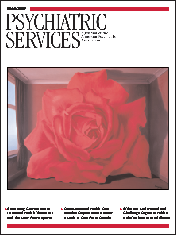Often physicians, therapists, and counselors get caught between the limitations set by their role as treater and demands from the legal system that arise because their patients have been unable to handle family, legal, work, or financial problems. Allan E. Barsky, a professor of social work at Florida Atlantic University, who holds a J.D. from the University of Toronto, and Jonathan Gould, a forensic and clinical psychologist in private practice in Charlotte, North Carolina, have used their legal and counseling expertise to craft an excellent guide for nonforensic clinicians who find themselves thrust into this unfamiliar legal arena. Although the authors provide a readable overview of the legal system, the book begins and ends with the clinician in mind. Opening with a case example of a custody dispute, Clinicians in Court: A Guide to Subpoenas, Depositions, Testifying, and Everything Else You Need to Know weaves this scenario and all its players through the entire volume. The case provides a framework for understanding the roles and duties of each party ("Frieda," the family therapist; "Sam," the social work investigator; and "Evelyn," the evaluator); because of that continuity, it is most useful to read the book from cover to cover.
The first chapter introduces the reader to the family in conflict and provides an overview of the system with which the family and its various clinicians are about to intersect. The authors conclude the chapter with an overview of the trial process and a section on non-court tribunals. Consistent with the book's clinician-centered focus, the second chapter is "Beginning With Yourself." It opens with questions to the reader that test preconceptions about the legal system and the reader's role therein. The chapter highlights the distinct starting points for the lawyer and the clinician and points out how those differences develop into obstacles and conflicts for the clinician. At first blush the chapter might seem worth skipping, with preference for the meatier topics of testimony and report writing. However, for the patient-centered therapist who is naive to the legal system, this thoughtful consideration of roles and biases is essential to understanding why an entire book is necessary. The chapter clarifies the roots of conflicts that inevitably confront the inexperienced clinician and provides a framework for the chapters that follow.
Other sections deal with issues related to attorney contacts, confidentiality, legal maneuvers to compel disclosure, clinical records, preparation for legal proceedings, and oral testimony for a fact witness. The authors present their "Ten Rules of Testifying," which include remaining professional, addressing other parties in the courtroom, avoiding jargon, keeping composure, and maintaining eye contact. Their review of the tactics of cross-examining attorneys is a must for a clinician called to testify. By understanding direct examination and cross-examination and the ways in which attorneys may twist testimony and discredit witnesses, the reader will enter the courtroom savvier.
It is not until halfway through the book that the material moves from issues faced by a fact witness to definitions and advice for the novice expert witness. The authors begin with basics such as the elements of a curriculum vitae, contracts, forms (with references to samples), payment issues, and documentary evidence and then cover the particularities of the direct and cross-examination of experts, the key elements of reports, and effective report writing. Someone beginning a forensic career should seek more preparation, but nonforensically trained clinicians sometimes find themselves stipulated as experts and need the rudimentary understanding of their role and the definition of documentary evidence that this chapter provides.
The book is written in a light style, and the authors continually refer back to the case sample. The final two chapters deal with claims against clinicians. The authors offer bulleted points with practical advice for avoiding malpractice. And tucked into a chapter on alternatives to adjudication are important reminders about discovery depositions. The appendices include samples of service agreements, informed consent, a sample letter to attorney, and an affidavit. The glossary defines the legal terms used throughout the book.
Reading Clinicians in Court is like attending a good workshop. It provides basic training for psychiatrists and other clinicians who will likely find themselves pulled into disputes at some point in the course of their careers. Barsky and Gould have written a handy guidebook for navigating the legal system, but as with any map, it is far more helpful if perused before departure.

